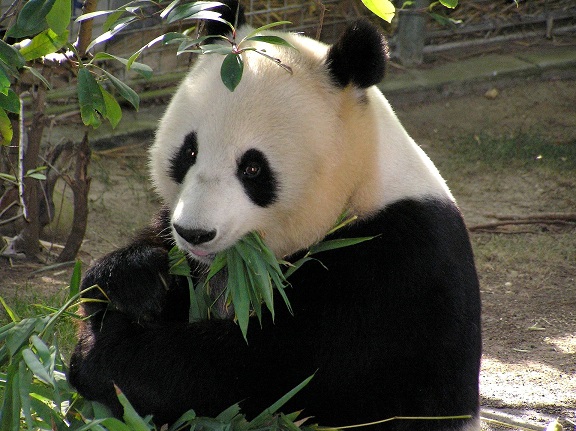(If you don’t get the Panda reference, I’ll explain at the end)
Recently, I was involved in a discussion about grammar over on the Writers Helping Writers Facebook group. The core of the discussion surrounded a YouTube video from the Guardian, take a look:
There are, to me, a LOT of things wrong in that video. The suggestion that correcting grammar is a colour/ class/ power issue is one that I find… flawed. And, whilst I accept that this is certainly about education, the strong impression I had from the video was one of anti-intellectualism. In this context, I mean the increasing social acceptability of viewing another with distrust or disdain as they know more about of topic than us. It’s a very depressing trend but not one I want to deal with today.
Today, I want to focus on something broader and more interesting to me:
Meaning.
So, let’s start with pushing off points, let’s start with a definition of grammar:
grammar
ˈɡramə/
noun
1.
the whole system and structure of a language or of languages in general, usually taken as consisting of syntax and morphology (including inflections) and sometimes also phonology and semantics.
Okay, good to know, but what do we mean by language? What’s that all about? (Bear with me here)
language
ˈlaŋɡwɪdʒ/
noun
1.
the method of human communication, either spoken or written, consisting of the use of words in a structured and conventional way.
Right, so the purpose of language is to communicate, to convey meaning. It has a purpose and, in order to fulfil that purpose, it needs to be constrained by standardisation, by rules. The power of language, though, is that it moves and grows, changes and develops; both in the words used and the way they are deployed. That is the beauty and the joy of language, it lives and breathes with us. But, there has to be a core, a bedrock of ideas which, though developed, are standard for or, at least, understood by those who are communicating.

In recent years, I’ve met many non-native English speakers, primarily from the Netherlands, and found that the core rules matter there even more than they do at home. These are people who have picked up English as a second language, from books, films, the Internet and school; not from an English speaking culture. This means that they apply and use a standard of English which isn’t the same as that used down your local bar on a Friday night.
My point being that, whilst I embrace the development and fracturing of grammar as a set of rules to enable language to grow, those rules are essential to achieve the ultimate goal of conveying meaning. If we all use language in a completely discrete, unique way, then we’re doomed to fail in expressing what we mean, to misunderstanding and a lack of clarity. In doing so, we defeat the core idea of language; to communicate.
So, whilst the presenter of the video may find corrections to grammar oppressive, I welcome them. I embrace them. I have much to learn and I know it! If I make grammatical errors, then I am failing to convey meaning and, if I am not going to express what I mean, what’s the point?
With this in mind, I ask you to feel free to correct and be corrected, accurate self expression shouldn’t be only available to the educated elite.
Maybe if everyone used their language more enthusiastically and accurately there wouldn’t be so much misunderstanding around us? I am not saying a grasp of tenses would bring equality to society, but I am saying it won’t make it worse…
What do you think? Is grammar elitist? Should we ignore inaccurate use of language? Or does it really not matter that much to you? Let me know below, on Facebook or Twitter! Thanks for reading.
(And why Pandas? Because of this very old joke:
A panda walks into a café. He orders a sandwich, eats it, then draws a gun and proceeds to fire it at the other patrons.
“Why?” asks the waiter amidst the carnage.
The panda pauses on his way out, produces a badly punctuated wildlife manual, and tosses it over his shoulder.
“Well, I’m a panda,” he says, “Look it up.”
The waiter turns to the relevant pages and finds the definition:
“Panda. Large black-and-white bear-like mammal, native to China. Eats, shoots and leaves.”)


Some good points made Simon. I understand what you mean, there has to be some sort of organisation to Grammar, how could we understand each other properly otherwise, (there’s an example of bad Grammar, oops)!
This is true in the written and spoken word. Terrible joke by the way 😉
LikeLike
Thanks Debbie, I completely agree. 🙂
And yes, it is awful, but the best jokes should raise a groan and a smile, I think.
LikeLike
Reblogged this on s a gibson.
LikeLike
Thanks!
LikeLike